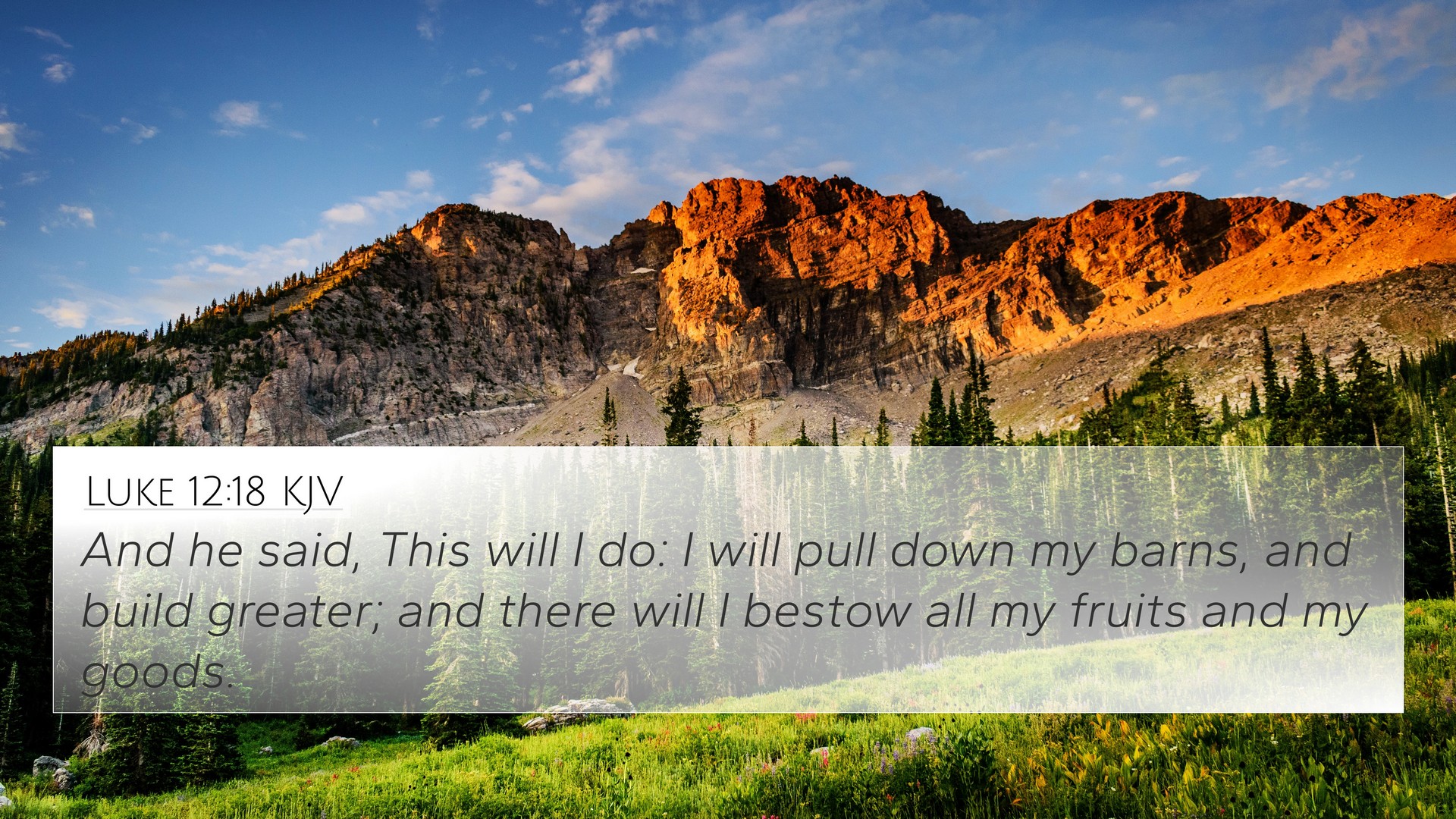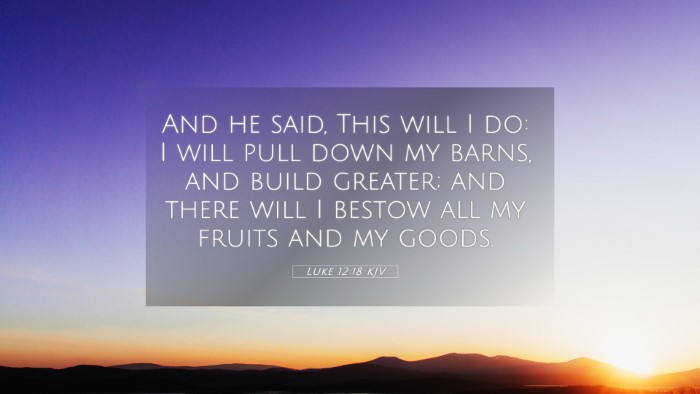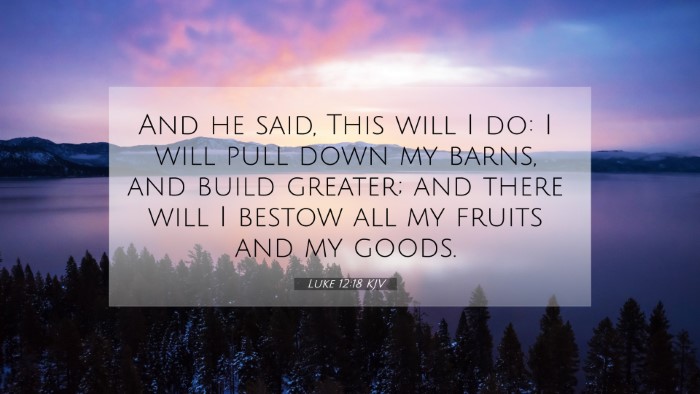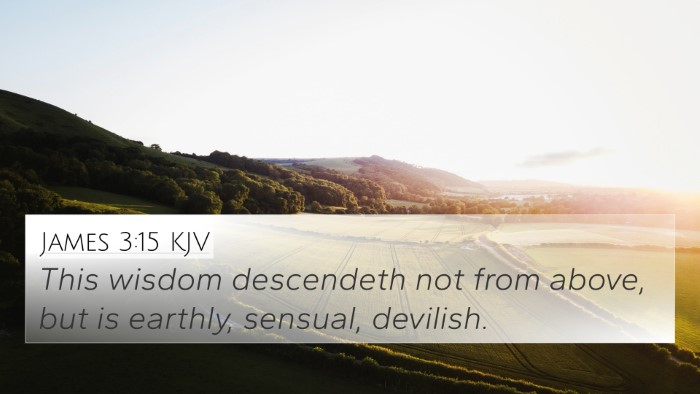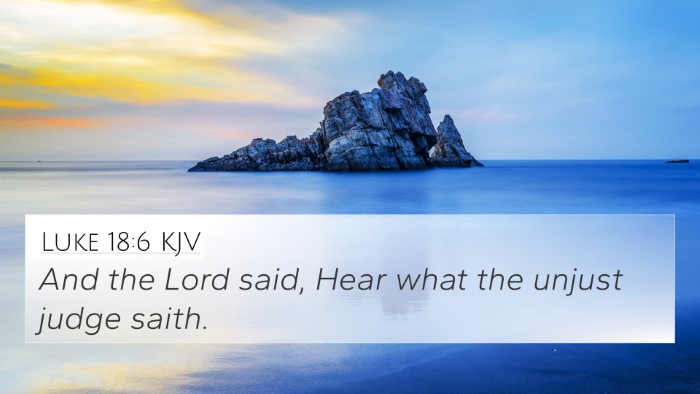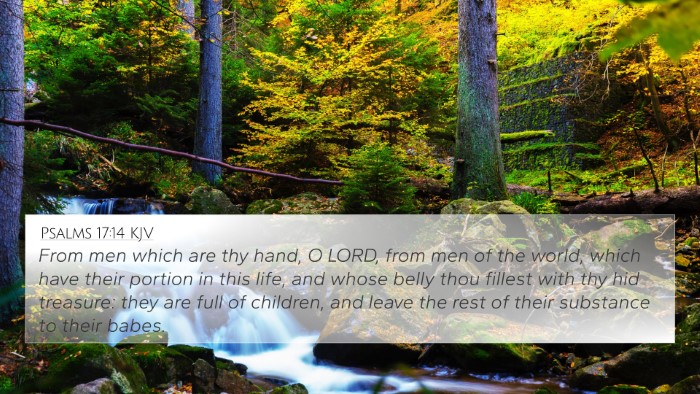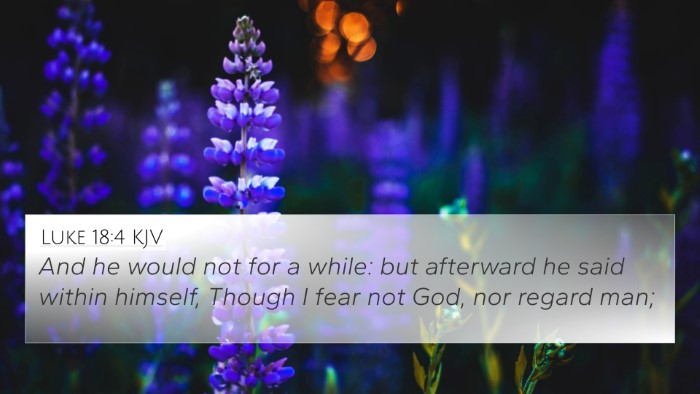Understanding Luke 12:18
Luke 12:18 (ESV): "And he said, 'I will do this: I will tear down my barns and build larger ones, and there I will store all my grain and my goods.'
Summarized Meaning of Luke 12:18
This verse captures a moment in the parable of the Rich Fool, where an individual reflects on his prosperity and decides to secure his wealth for the future. The underlying themes denote the folly of prioritizing material wealth over spiritual matters and the transient nature of life and riches.
Insightful Commentaries
-
Matthew Henry's Commentary:
Henry emphasizes the foolishness of relying on material possessions. He warns against neglecting the soul in pursuit of earthly treasures, suggesting that true wealth lies not in accumulation but in spiritual and eternal matters.
-
Albert Barnes' Notes:
Barnes notes that the man’s decision to build larger barns reflects a misunderstanding of true security and peace. Rather than focusing solely on his earthly concerns, he should consider the brevity of life and the importance of spiritual investment.
-
Adam Clarke's Commentary:
Clarke draws readers’ attention to the notion of selfishness inherent in the man’s plan. The focus on personal gain highlights a lack of awareness regarding the needs of others, as well as the unavoidable reality of divine judgment.
Cross-References to Luke 12:18
- Matthew 6:19-21: "Do not lay up for yourselves treasures on earth... For where your treasure is, there your heart will be also."
- Ecclesiastes 5:10: "He who loves silver will not be satisfied with silver; nor he who loves abundance, with increase. This also is vanity."
- James 4:14: "Yet you do not know what tomorrow will bring. What is your life? For you are a mist that appears for a little time and then vanishes."
- Luke 12:20: "But God said to him, 'Fool! This night your soul is required of you, and the things you have prepared, whose will they be?'"
- 1 Timothy 6:7: "For we brought nothing into the world, and we cannot take anything out of the world."
- Proverbs 11:4: "Riches do not profit in the day of wrath, but righteousness delivers from death."
- Luke 16:19-31: The parable of the Rich Man and Lazarus illustrates the ultimate fate of those who prioritize wealth over righteousness.
Thematic Connections
This verse and its surrounding context invite us to reflect on our priorities in life. The decisions made by the rich fool offer profound insights into the alluring nature of wealth. Each cross-reference further connects diverse Biblical themes such as:
- Materialism vs. Spiritual Wealth: Emphasizing the difference between transient earthly riches and enduring spiritual treasures.
- The Importance of Generosity: Encouraging sharing and caring for the less fortunate.
- Life's Uncertainty: Reminding us of the brevity of life and the need to prepare spiritually.
- Divine Judgment: Highlighting God's assessment of one's life choices beyond mere material accumulation.
Using Tools for Bible Cross-Referencing
Engaging with scripture deeply is essential for understanding its meanings. Tools for cross-referencing, such as Bible concordances, can facilitate:
- Identifying Key Themes: Recognizing recurring ideas and messages throughout the Bible.
- Understanding Context: Setting verses within their broader narrative for enhanced clarity.
- Drawing Parallels: Connecting both Old and New Testament insights to form a comprehensive view of biblical teachings.
Conclusion
In summary, Luke 12:18 not only highlights the folly of selfish materialism but also serves as a critical reminder of our need for spiritual integrity. By engaging with this verse and its cross-references, believers can explore deeper themes of trust, generosity, and the nature of true wealth that the Scriptures consistently emphasize.
